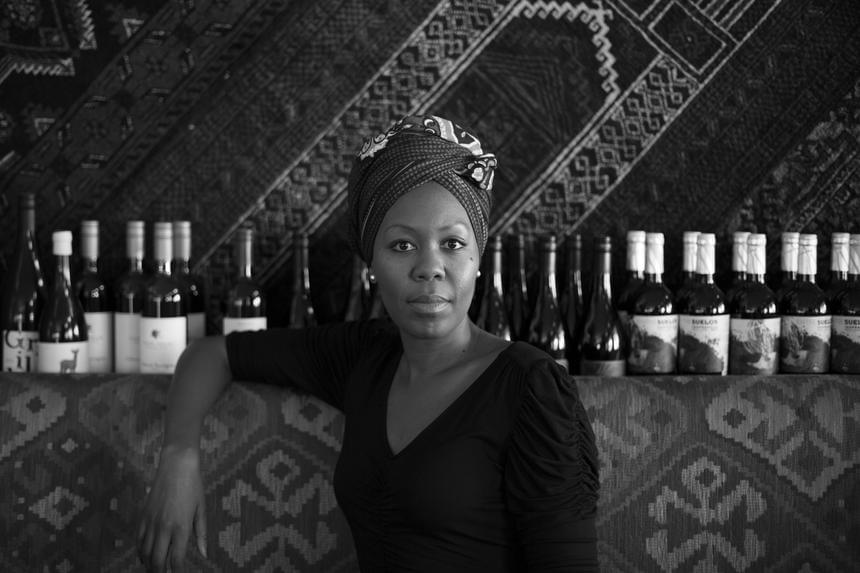Always Another Country: A Memoir of Exile and Home
Sisonke Msimang
If I were given five minutes with my younger self—that little girl who cried every time we had to leave for another country—I would hold her tight and not say a word. I would just be still and have her feel my beating heart, a thud to echo her own—a silent message that, no matter the outcome, she would survive and be stronger and happier than she might think as she stood at the threshold of each new home.
Sisonke Msimang was born in exile, the daughter of South African freedom fighters. Always Another Country is the story of a young girl’s path to womanhood—a journey that took her from Africa to America and back again, then on to a new home in Australia.
Frank, fierce and insightful, she reflects candidly on the abuse she suffered as a child, the naive, heady euphoria of returning at last to her parents’ homeland—and her disillusionment with present-day South Africa and its new elites. Sisonke Msimang is a bold new voice on feminism, race and politics—in her beloved South Africa, in Australia, and around the world.
Read Sisonke Msimang’s piece ‘A Short, Powerful Lesson on the Function of Shame in Rape Culture’ on SBS.com’s TheFeed.
Read an extract from Always Another Country in the Sunday Life magazine.
INTERVIEWS
ABC.net: Matter of Fact with Stan Grant [31:45:00]
ABC Radio: Conversations
ABC Radio National, Life Matters
Kill Your Darlings
New York Times: Do Australians Have a Case of ‘Jacinda Envy’? (opinion piece)
RTR FM
Sydney Morning Herald
SMH, Good Weekend
Viceland
REVIEWS
andAlways Another Country
‘Few of us have felt the grinding force of history as consciously or as constantly as Sisonke Msimang. Her story is a timely insight into a life in which the gap between the great world and the private realm is vanishingly narrow and it bears hard lessons about how fragile our hopes and dreams can be.‘
‘Brutally and uncompromisingly honest, Sisonke’s beautifully crafted storytelling enriches the already extraordinary pool of young African women writers of our time.’
‘A brave and intimate journey. Msimang delivers a deep call for fierce courage in the face of hypocrisy and compassion when faced with our shared humanity.’
‘Sisonke Msimang kindles a new fire in our store of memoir, a fire that will warm and singe and sear for a long, long while.’
‘Msimang pours herself into these pages with a voice that is molten steel; her radiant warmth and humour sit alongside her fearlessness in naming and refusing injustice. Msimang is a masterful memoirist, a gifted writer, and she comes bearing a message that is as urgent and timely as it is eternal.’
‘It is rare to hear from such a voice as Sisonke’s—powerful, accomplished, unabashed and brave. This is a gripping and important memoir that is also self-aware and funny, revealing the depths of a country we’ve mostly only seen through a colonial perspective.’
‘It is not possible to do this book justice in so few words…Always Another Country is eloquent and powerful. Msimang’s explication of what it means to be from – but not of – a place is profoundly moving. Msimang deserves to be widely read and fans of Roxane Gay and Maxine Beneba Clarke, in particular, will not be disappointed.’
‘An excellent blend of both the personal and political…a bold memoir…a tale that will sustain itself for generations.’
‘[An] eloquent memoir of home, belonging and race politics.’
‘Msimang is a talented and passionate writer, one possessed of an acerbic intelligence…This memoir is also full of warmth and humour.’
‘Eloquently, intelligently and passionately written…A gift of gritty reality in a fake news world. [Sisonke’s] greatest strength is her willingness to examine concepts such as freedom, racism, gender relations, and the ability of peace and prosperity to exist under conditions of verbal and physical violence. It makes this book an inspiration for all those trying to make some sense of the world in which we find ourselves.’
‘This eloquent, moving and heartfelt memoir will have readers riveted from start to end…Sisonke’s passion, idealism and courage beam true from every page.’
‘A graceful memoir.’
‘Msimang’s graceful memoir is one of those rare books that managed to make me less cynical about the state of literature…It’s a coming-of-age story for those children for whom home is marked by more than a single physical location.’






